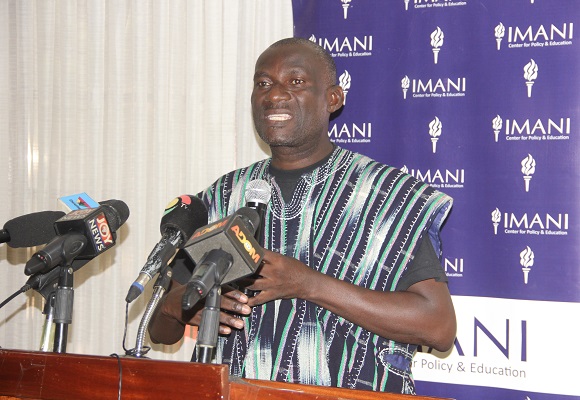The Ghana Independent Broadcasters Association (GIBA) has backed the decision of the Technical Committee of the Ghana Standards Authority (GSA) to exclude a mandatory conditional access system (CAS) from the updated standard on Digital Terrestrial Television (DDT) and director-to-home receivers.
The association said the revised standard on DTT and direct-to-home receivers made CAS non-mandatory for free-to-air (FTA) receivers, which meant they did not have to pay to receive FTA channels such as TV3, GHOne, TV Africa, Adom TV, UTV, Joy News, Joy Prime, Crystal TV, among others.
The GIBA estimates that more than 95 per cent of Ghanaians rely on such FTA channels for their broadcasting services and information for free.
“This will mean television broadcasters who have been authorised by the National Communications Authority (NCA) to operate in the FTA category can continue to reach the general public without viewership restrictions as required by the terms of their authorisation, which is consistent with the provisions of the 1992 Constitution regarding media freedom, human rights and the individual rights to information,” it said.
Victory
In a press statement signed by its President, Mr Andrew Danso- Aninkora, and issued in Accra yesterday, the GIBA said: “GIBA considers the exclusion of a mandatory CAS as a major victory for indigenous Ghanaian businesses which dominated the FTA sector.
“The proposal to encrypt FTA content had attracted considerable anger from the sector, as the proposal will mean a tacit conversion of their FTA broadcast services into a pay-TV model, controlled by a third party conditional access (CA) vendor and or the platform owner.”
It said as FTA broadcasting service providers, the pay-TV model would only project dwindling advertising revenues, as the blocking of content would result in the reduction of viewers accessing the FTA service.
It expressed the hope that with the publication of the Revised Standard GS1099: -2019, the NCA would revise the existing Conformance Regime for the certification of receivers of FTA DTT to reflect the tenets of the revised new standard.
Concerns
The association said in its earlier press statement published in the Daily Graphic of May 28, 2019, it raised concerns about the Ministry of Communication’s move to introduce a mandatory encryption of FTA television by means of a conditional access module for the purpose of collecting TV licence fees.
The move, it said, was a departure from the original draft policy which did not include a CAS.
“The concerns stemmed from the revision of the draft policy to the effect that the existing Ghana Standard on digital television receivers for FTA would be revised to include conditional access among other new features.
“For example, Paragraph 5.4 of the policy indicated that even digital television sets already in Ghanaian homes and receiving digital channels cannot continue to receive signals from the DTT platform, unless a CA embedded set-top-box (STB) prescribed by the MoC is acquired in addition,” it said.
Ignoring concerns
The GIBA indicated that the MoC did not countenance the legitimate concerns of the main industry stakeholder, the GIBA, but proceeded to request the amendment of the previous standard (GS1099: 2014) to include a mandatory CA feature by its communication to the GSA, which referred the matter to its Technical Committee on Telecommunications and ICT Equipment Standards (TC 24) for consideration.
“The GIBA has made well researched proposals on alternatives to raise revenue to fund public broadcasting and the DTT platform that eliminated the need to encrypt FTA television and which entailed no administrative costs for the collection, in sharp contrast to the proposed use of a CA model for the collection of TV licence fees, but the ministries of Information and Communications have paid no heed,” it stated.
“It would be recalled that the MoC, through the NCA, published a notice in the Daily Graphic of April 1 and 2, 2019 suspending the DTT conformance certification process to make way for the modification of the minimum specification (Conformance Regime) which was withdrawn by the same publication.
“The publication also placed a ban on the manufacture, sale, purchase and promotion of DTT receivers already certified in conformity with the withdrawn specification,” the statement recalled.
It said the publication caused an uproar in the television industry, with some legal challenges, but it was eventually modified by means of an addendum allowing existing DTT operations to continue until another specification was adopted.

